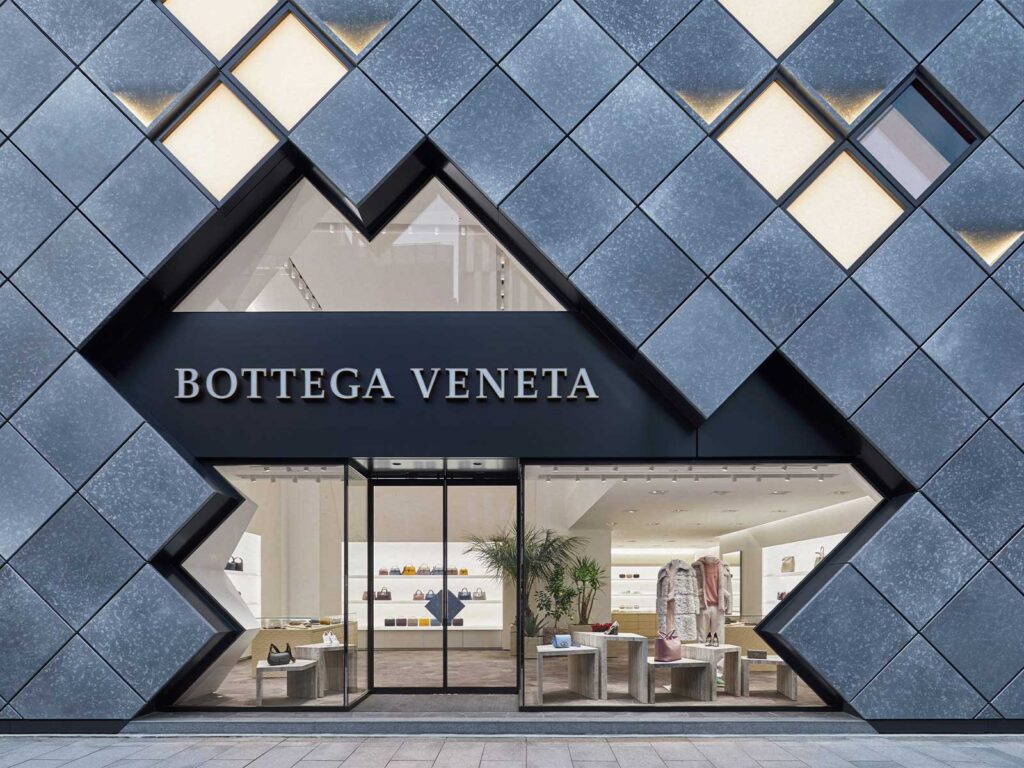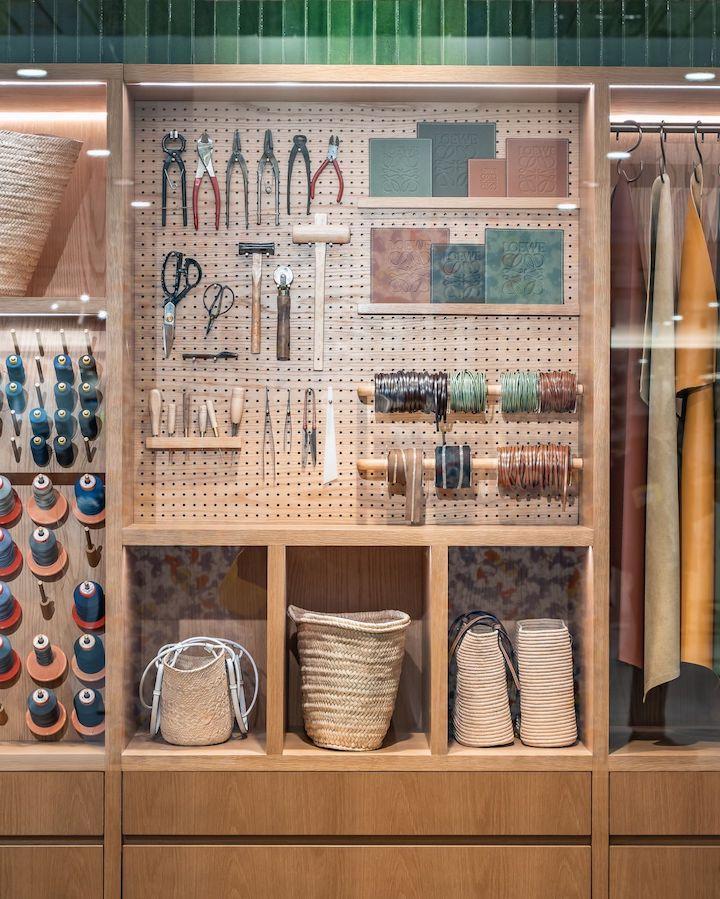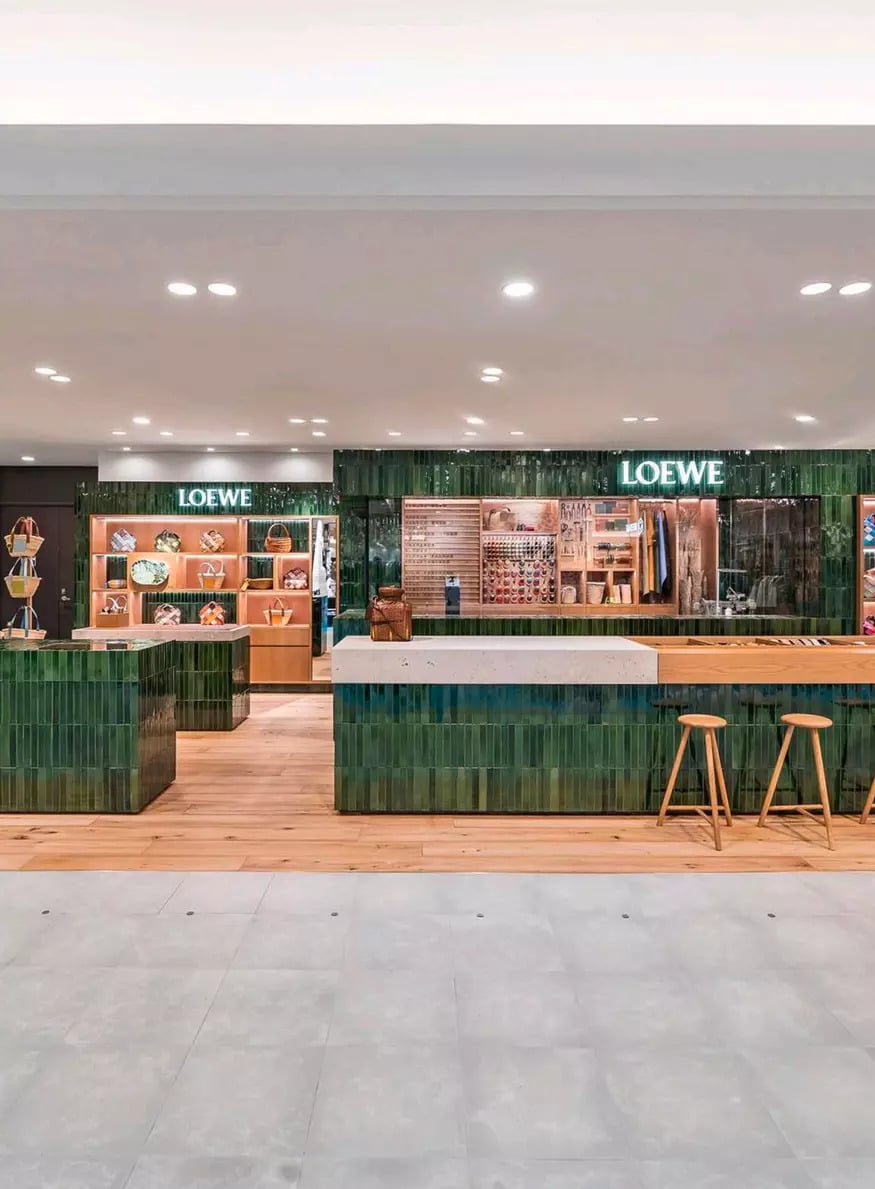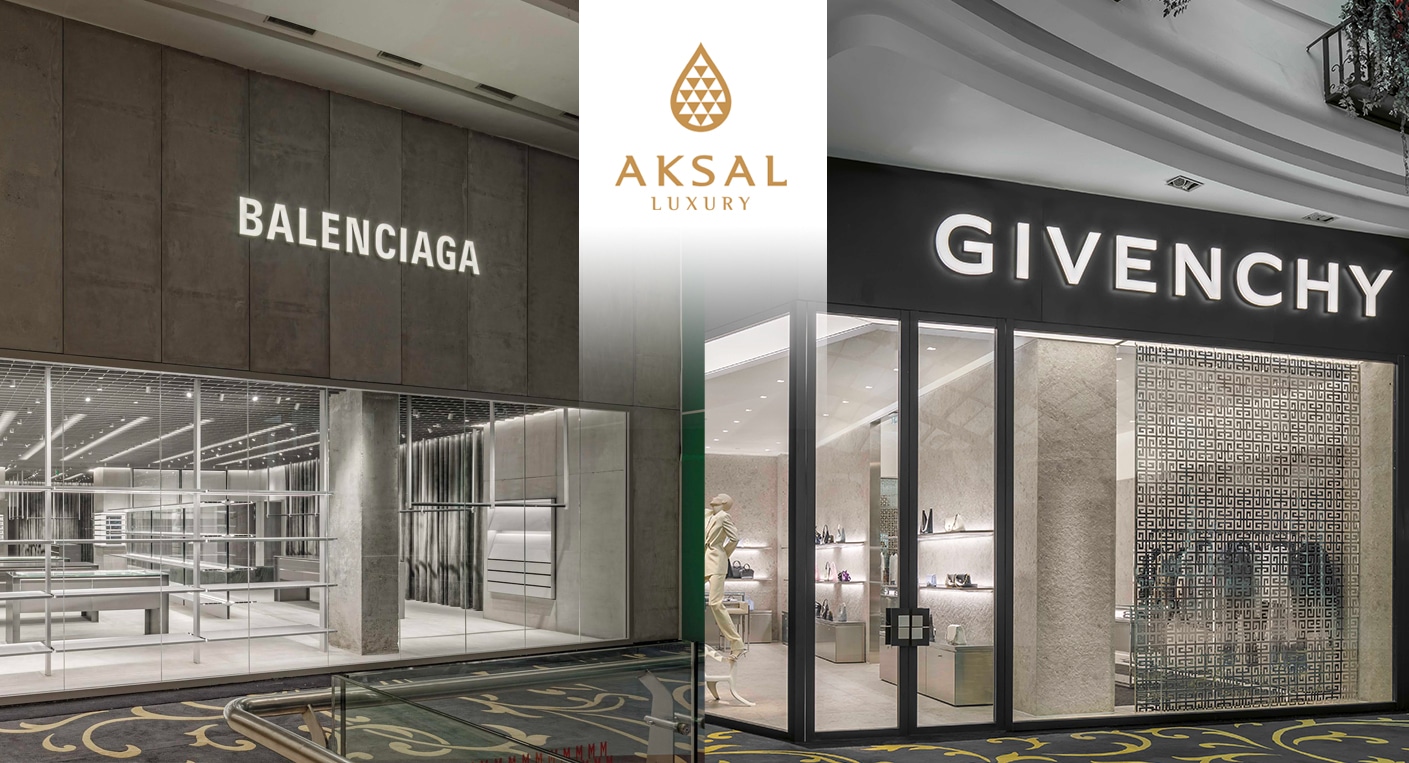[vc_row njt-role=”people-in-the-roles” njt-role-user-roles=”administrator,editor,author,armember”][vc_column][vc_column_text]
At a time when sustainability is asserting itself as an essential concept among luxury consumers, many of them aspire to combine eco-responsibility with long-term investment value. Under the leadership of the Fédération de la Mode Circulaire, luxury brands as well as new players in the field of fashion are multiplying efforts and projects in this direction.
In 2023, the inaugural year of the Circular Fashion Federation within the French Fashion Institute is celebrated. On April 17, this Federation published its latest analysis on the circular economy market in the fashion and luxury sector in France.
At present, the global circular market in France is worth 5.7 billion euros. The study indicates that by 2030, this value could rise to 14 billion euros. This change would mark a 29% share of the circular economy in the French fashion and luxury market. Currently, it is mainly the sale of second-hand products that catalyzes this evolution. Sales of second-hand fashion and luxury goods are increasing at an annual rate of 13% in France, demonstrating the vitality of this market.

According to the Federation’s analysis, quantifying repair and upcycling activities is more complex, although consumer interest is evident. The repair market for luxury goods is set to expand in the coming years.
The study by the Circular Fashion Federation confirms the strategies already deployed in the luxury sector. Indeed, several luxury houses have begun their commitment to the life cycle of their products and their repair. Since the crisis of 2020, sustainable fashion has even emerged as one of the pillars of growth in the luxury sector.
Increasing competition
Luxury homes are investing in repair so as not to be overwhelmed in this competitive environment. Indeed, new players specializing in the repair of luxury items are entering the market. A notable example is Collector Square, an expert in the field of second-hand luxury.The company clearly positions itself by offering cleaning, repair and restoration services for luxury bags and other leather goods accessories. Last February, she even opened a pop-up store at Le Bon Marché in Paris.
In such a competitive environment, luxury brands have every interest in developing their own repair services. This becomes a crucial lever to maintain customer loyalty. Indeed, they have a clear interest in convincing their customers to entrust their repair needs to them.
Selfridges Second Hand Ready-to-Wear
British department store chain Selfridges is determined to propel the circular economy movement. By 2030, nearly half of the projected transactions are expected to focus on second-hand purchases, repair services, rentals and refills. The previous year, the group had already anticipated its target of carbon neutrality, initially planned for 2050, at the new deadline of 2040.
“Above all, we encourage people to think about how they can extend the life of a product. We enable customers to give their wardrobe a longer life than buying new,” said Andrew Keith, General Manager. He also said that the Thai conglomerate Central Group, the new owners, fully adheres to this vision.

Although there is still some way to go, only 5-6% of customer transactions currently based on “circular” models such as resale or repair, the previous year saw significant growth. Second-hand sales increased 240% to 17,771 units, and 28,000 repairs were completed. To meet the demand, Selfridges launched a repair service specifically dedicated to sneakers, knowing that a third of the repairs concerned sports shoes. This service has since been extended to the other three department stores.
In the same spirit, its competitor John Lewis also aims to develop the second-hand market, with the aim of introducing a buyback or take-back system for all product categories by 2025.
The certificate of craftsmanship of Bottega Veneta
Last October, Bottega Veneta, belonging to the French group Kering, introduced what it calls its «certificate of craftsmanship». This initiative aims to offer a lifetime warranty for the brand’s leather goods, allowing Bottega Veneta customers to benefit from a lifetime maintenance service.
According to Leo Rongone, CEO of Bottega Veneta, this step represents a logical progression in the quest for an optimal lifespan for luxury goods. “The Certificate of Craftsmanship was born out of a desire to provide our customers with a superior service of long-term preservation of their products.”

This initiative also demonstrates the Italian brand’s commitment to eco-friendly fashion. Rongone adds, “We are focused on responsible growth. Our intention is to keep products in use longer, reducing the need to replace them.”
Loewe luxury bag repairs
For its first establishment, the Spanish leather goods house Loewe has set its sights on Japan. In the Land of the Rising Sun, the brand has about forty points of sale in its own, both in brands and in department stores. More specifically, the city of Osaka and the Hankyu Umeda shopping center are the chosen places, with the recent redevelopment of the 8th floor called “Green Age”, intended to accommodate brands, products and services more respectful of the environment. It is important to point out that Loewe belongs to the luxury group LVMH, already strongly committed to circular fashion through its Nona Source initiative.

Inside the Loewe ReCraft shop, customers of the house have the opportunity to solicit artisans to embellish their items. The services offered include various sewing services, the restoration of edges discolored by friction, as well as the replacement of eyelets, rivets or bag handles.
In addition to this range of catering services, the shop also offers a variety of customization options, as well as a selection of products such as bags, baskets, and pouches, all designed from the house’s surplus raw materials. Initiated by Jonathan Anderson, Loewe’s artistic director, this reuse principle has already given life to the Eye/LOEWE/Nature collection, as well as to the Surplus Project handbag series.
Whether you are a luxury home, department store or pure player, integrating a repair service aims not only to gain a sustainable foothold in the flourishing second-hand market but also to take control of the entire value chain.
As a bonus, because the product’s longevity is extended by the brand itself, the customer relationship gains as much in duration as in proximity.
This stage of repair assumed and visible even in the configuration of the sales spaces thus regains its letters of nobility and becomes a full element of the luxury customer experience.
Not to mention that by raising customer awareness of the extension of the lifespan of its luxury items, the brand is doing a double job by strengthening its position in the promotion of sustainable development.
Read also >The Fashion & Luxury sector redefines its strategic objectives until 2027
Featured photo : ©Loewe[/vc_column_text][/vc_column][/vc_row][vc_row njt-role=”not-logged-in”][vc_column][vc_column_text]
At a time when sustainability is asserting itself as an essential concept among luxury consumers, many of them aspire to combine eco-responsibility with long-term investment value. Under the leadership of the Fédération de la Mode Circulaire, luxury brands as well as new players in the field of fashion are multiplying efforts and projects in this direction.
In 2023, the inaugural year of the Circular Fashion Federation within the French Fashion Institute is celebrated. On April 17, this Federation published its latest analysis on the circular economy market in the fashion and luxury sector in France.
At present, the global circular market in France is worth 5.7 billion euros. The study indicates that by 2030, this value could rise to 14 billion euros. This change would mark a 29% share of the circular economy in the French fashion and luxury market. Currently, it is mainly the sale of second-hand products that catalyzes this evolution. Sales of second-hand fashion and luxury goods are increasing at an annual rate of 13% in France, demonstrating the vitality of this market.

According to the Federation’s analysis, quantifying repair and upcycling activities is more complex, although consumer interest is evident. The repair market for luxury goods is set to expand in the coming years.
The study by the Circular Fashion Federation confirms the strategies already deployed in the luxury sector. Indeed, several luxury houses have begun their commitment to the life cycle of their products and their repair. Since the crisis of 2020, sustainable fashion has even emerged as one of the pillars of growth in the luxury sector.
Increasing competition
Luxury homes are investing in repair so as not to be overwhelmed in this competitive environment. Indeed, new players specializing in the repair of luxury items are entering the market. A notable example is Collector Square, an expert in the field of second-hand luxury.The company clearly positions itself by offering cleaning, repair and restoration services for luxury bags and other leather goods accessories. Last February, she even opened a pop-up store at Le Bon Marché in Paris.
In such a competitive environment, luxury brands have every interest in developing their own repair services. This becomes a crucial lever to maintain customer loyalty. Indeed, they have a clear interest in convincing their customers to entrust their repair needs to them.
Selfridges Second Hand Ready-to-Wear
British department store chain Selfridges is determined to propel the circular economy movement. By 2030, nearly half of the projected transactions are expected to focus on second-hand purchases, repair services, rentals and refills. The previous year, the group had already anticipated its target of carbon neutrality, initially planned for 2050, at the new deadline of 2040.
“Above all, we encourage people to think about how they can extend the life of a product. We enable customers to give their wardrobe a longer life than buying new,” said Andrew Keith, General Manager. He also said that the Thai conglomerate Central Group, the new owners, fully adheres to this vision.

Although there is still some way to go, only 5-6% of customer transactions currently based on “circular” models such as resale or repair, the previous year saw significant growth. Second-hand sales increased 240% to 17,771 units, and 28,000 repairs were completed. To meet the demand, Selfridges launched a repair service specifically dedicated to sneakers, knowing that a third of the repairs concerned sports shoes. This service has since been extended to the other three department stores.
[…][/vc_column_text][vc_cta h2=”This article is reserved for subscribers.” h2_font_container=”tag:h2|font_size:16|text_align:left” h2_use_theme_fonts=”yes” h4=”Subscribe now !” h4_font_container=”tag:h2|font_size:32|text_align:left|line_height:bas” h4_use_theme_fonts=”yes” txt_align=”center” color=”black” add_button=”right” btn_title=”I SUBSCRIBE !” btn_color=”danger” btn_size=”lg” btn_align=”center” use_custom_fonts_h2=”true” use_custom_fonts_h4=”true” btn_button_block=”true” btn_custom_onclick=”true” btn_link=”url:https%3A%2F%2Fluxus-plus.com%2Fen%2Fsubscriptions-and-newsletter-special-offer-valid-until-september-30-2020-2-2%2F”]Get unlimited access to all articles and live a new reading experience, preview contents, exclusive newsletters…
Already have an account ? Please log in.
[/vc_cta][vc_column_text]Featured photo : © Loewe[/vc_column_text][/vc_column][/vc_row][vc_row njt-role=”people-in-the-roles” njt-role-user-roles=”subscriber,customer”][vc_column][vc_column_text]
At a time when sustainability is asserting itself as an essential concept among luxury consumers, many of them aspire to combine eco-responsibility with long-term investment value. Under the leadership of the Fédération de la Mode Circulaire, luxury brands as well as new players in the field of fashion are multiplying efforts and projects in this direction.
In 2023, the inaugural year of the Circular Fashion Federation within the French Fashion Institute is celebrated. On April 17, this Federation published its latest analysis on the circular economy market in the fashion and luxury sector in France.
At present, the global circular market in France is worth 5.7 billion euros. The study indicates that by 2030, this value could rise to 14 billion euros. This change would mark a 29% share of the circular economy in the French fashion and luxury market. Currently, it is mainly the sale of second-hand products that catalyzes this evolution. Sales of second-hand fashion and luxury goods are increasing at an annual rate of 13% in France, demonstrating the vitality of this market.

According to the Federation’s analysis, quantifying repair and upcycling activities is more complex, although consumer interest is evident. The repair market for luxury goods is set to expand in the coming years.
The study by the Circular Fashion Federation confirms the strategies already deployed in the luxury sector. Indeed, several luxury houses have begun their commitment to the life cycle of their products and their repair. Since the crisis of 2020, sustainable fashion has even emerged as one of the pillars of growth in the luxury sector.
Increasing competition
Luxury homes are investing in repair so as not to be overwhelmed in this competitive environment. Indeed, new players specializing in the repair of luxury items are entering the market. A notable example is Collector Square, an expert in the field of second-hand luxury.The company clearly positions itself by offering cleaning, repair and restoration services for luxury bags and other leather goods accessories. Last February, she even opened a pop-up store at Le Bon Marché in Paris.
In such a competitive environment, luxury brands have every interest in developing their own repair services. This becomes a crucial lever to maintain customer loyalty. Indeed, they have a clear interest in convincing their customers to entrust their repair needs to them.
Selfridges Second Hand Ready-to-Wear
British department store chain Selfridges is determined to propel the circular economy movement. By 2030, nearly half of the projected transactions are expected to focus on second-hand purchases, repair services, rentals and refills. The previous year, the group had already anticipated its target of carbon neutrality, initially planned for 2050, at the new deadline of 2040.
“Above all, we encourage people to think about how they can extend the life of a product. We enable customers to give their wardrobe a longer life than buying new,” said Andrew Keith, General Manager. He also said that the Thai conglomerate Central Group, the new owners, fully adheres to this vision.

Although there is still some way to go, only 5-6% of customer transactions currently based on “circular” models such as resale or repair, the previous year saw significant growth. Second-hand sales increased 240% to 17,771 units, and 28,000 repairs were completed. To meet the demand, Selfridges launched a repair service specifically dedicated to sneakers, knowing that a third of the repairs concerned sports shoes. This service has since been extended to the other three department stores.
[…][/vc_column_text][vc_cta h2=”This article is reserved for subscribers.” h2_font_container=”tag:h2|font_size:16|text_align:left” h2_use_theme_fonts=”yes” h4=”Subscribe now !” h4_font_container=”tag:h2|font_size:32|text_align:left|line_height:bas” h4_use_theme_fonts=”yes” txt_align=”center” color=”black” add_button=”right” btn_title=”I SUBSCRIBE !” btn_color=”danger” btn_size=”lg” btn_align=”center” use_custom_fonts_h2=”true” use_custom_fonts_h4=”true” btn_button_block=”true” btn_custom_onclick=”true” btn_link=”url:https%3A%2F%2Fluxus-plus.com%2Fen%2Fsubscriptions-and-newsletter-special-offer-valid-until-september-30-2020-2-2%2F”]Get unlimited access to all articles and live a new reading experience, preview contents, exclusive newsletters…
Already have an account ? Please log in.
[/vc_cta][vc_column_text]Featured photo : © Loewe[/vc_column_text][/vc_column][/vc_row]








